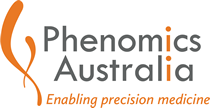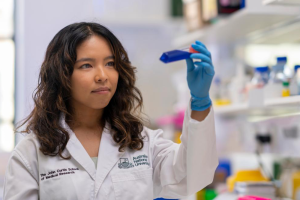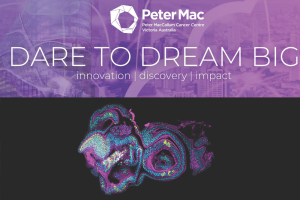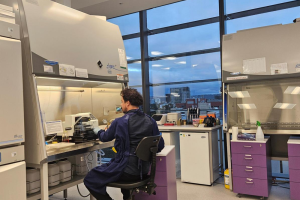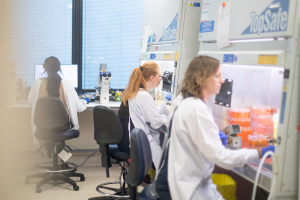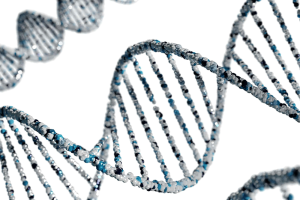Ovarian cancer has been treated as a single disease for many years. It is now known that there are multiple distinct subtypes of ovarian cancer, and each subtype has a different genetic profile. One of the less common subtypes is Low-Grade Serous Ovarian Carcinoma (LGSOC), which is particularly common in young women. This cancer is difficult to treat because it is usually resistant to chemotherapy.
In 2020, Dr Dane Cheasley, a senior postdoctoral fellow within the Campbell Laboratory at Peter MacCallum Cancer Centre was awarded a Therapeutic Innovation Australia (TIA) Pipeline Accelerator Grant to investigate new combination therapies for the treatment of LGSOC, a rare form of ovarian cancer. Due to their rarity, for the past 30 years LGSOC treatment protocols have been based on that developed for more prevalent forms of ovarian cancer which do not take into account the lack of unique ‘driver’ genes, copy number changes and cancer signalling pathways that LGSOC’S are addicted to. As such these tumours are largely unresponsive to standard ovarian chemotherapy drugs with 80-90% of women not surviving 10 years post-diagnosis, highlighting the need to develop new tailored therapeutic approaches.
In collaboration with A/Prof Kaylene Simpson and her highly skilled team at the Phenomics Australia Victorian Centre for Functional Genomics (VCFG) node, Dr Kathleen Pishas, a post-doctoral fellow within Dr Cheasley’s team has recently completed the largest single agent LGSOC high-throughput drug screening effort in 12 patient-derived LGSOC cell lines, investigating 3486 single agents from Compounds Australia’s FDA (n=2322), kinase (n=430) and epigenetic (n=684) drug libraries.
“With the use of automated robotics and high-content imaging, we analysed over 260,032 plate wells for drug sensitivity. Importantly, sophisticated data analysis led by Karla Cowley at the VCFG, revealed 111 compounds that are effective in the majority of LGSOC cell lines from a diverse range of drug classes currently not being investigated for LGSOC. These compounds form phase 2 of the project.”

Dr Cheasley’s team will now validate these 111 agents over long dose-response curves, then at bioactive concentrations, investigate them in pairwise combinations to identify novel synergistic interactions.
“We will then verify these using pre-clinical 3D spheroid models. The team will also use the recently developed high throughput sequencing method called MAC-seq (Li et al, 2023) to establish the transcriptional changes that occur in response to treatment”. A/Prof Kaylene Simpson, head of the VCFG said.

“Funding from TIA in the form of the Pipeline accelerator voucher scheme, and through Phenomics Australia supporting the VCFG, has been instrumental in the development of this exciting project” Dr Cheasley said.

“This innovative project is the first of its kind, will highlight new treatment modalities and will create immediate clinical drug development opportunities to significantly improve LGSOC patient outcomes.” Dr Kathleen Pishas said.
Leveraging the foundational data obtained, Dr. Cheasley and A/Prof Simpson successfully secured additional funding, including a prestigious $1.1 million four-year grant from the Federal Government’s Medical Research Future Fund (MRFF). This funding will facilitate the expansion of the drug screening campaign to encompass more LGSOC cell lines. Moreover, Dr. Cheasley was awarded a 2020 Victorian Cancer Agency (VCA) Mid-Career Research Fellowship, while Dr. Pishas received a 2022 CASS Foundation award, further strengthening the project’s resources and expertise.
Reference
Li XM, Yoannidis D, Ramm S, Luu J, Mir Arnau G, Semple T, Simpson KJ. MAC-seq: Coupling low-cost, high-throughput RNA-seq with image-based phenotypic screening in 2D and 3D cell models. Accepted Methods in Molecular Biology, Ed Brendan Jenkins, Cold Spring Harbour Press.
Explore Our Team’s Contributions to “Inflammation and Cancer: Methods and Protocols” here.
The VCFG provides a collaborative and innovative partnership. Primarily operates a ‘researcher driven, staff assisted’ model working with researchers each step of the way, through assay development, optimisation, transfection and analysis. This partnership begins with a discussion with A/Prof Kaylene Simpson followed by embedding into the laboratory, training on instruments and performing experiments alongside us until project completion. Comprehensive user guides and associated instrument guides are provided. All data generated remains the intellectual property of the researcher. Importantly, each project is customised to the specific biological question, helping drive the project to the best screen outcome possible.
The VCFG is headed by A/Prof Kaylene Simpson and a team of highly experienced research team. A/Prof Kaylene Simpson can be contacted on kaylene.simpson@petermac.org.
Through the Victorian Centre for Functional Genomics (VCFG) at the Peter MacCallum Cancer Centre, the Harry Perkins Institute of Medical Research (Perkins), and most recently through the ANU Centre for Therapeutic Discovery (ACTD, The John Curtin School of Medical Research, ANU) Monash University, and at the University of Adelaide (in partnership with SAHMRI), Phenomics Australia Functional Genomics and High-throughput screening services enable biomedical researchers Australia-wide with the ability to perform novel discovery-based screens using multiple platforms.
